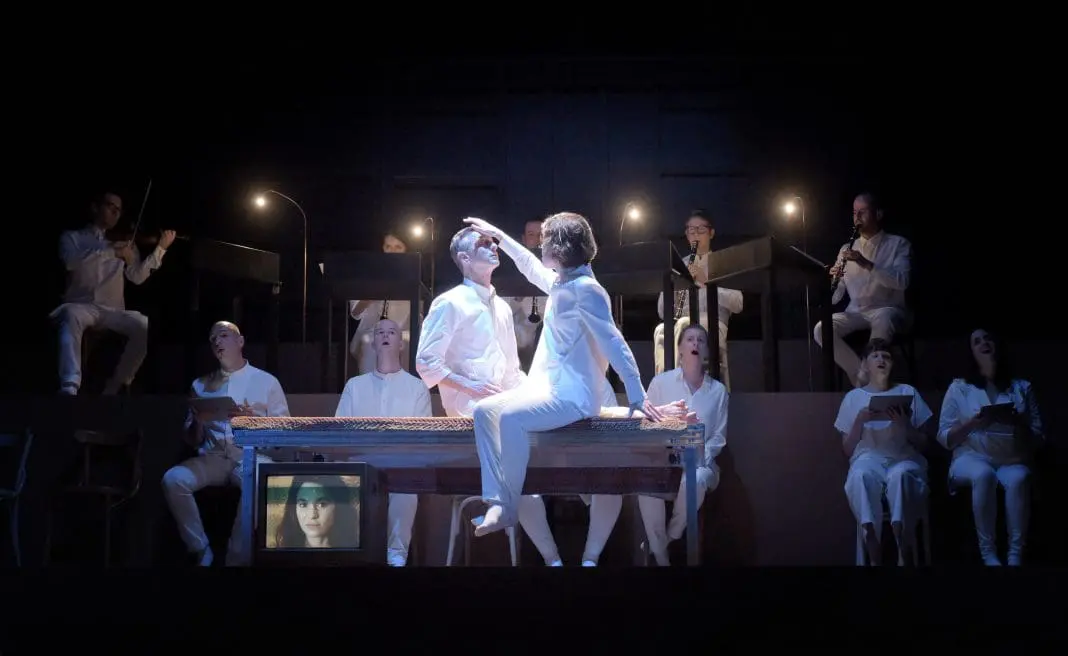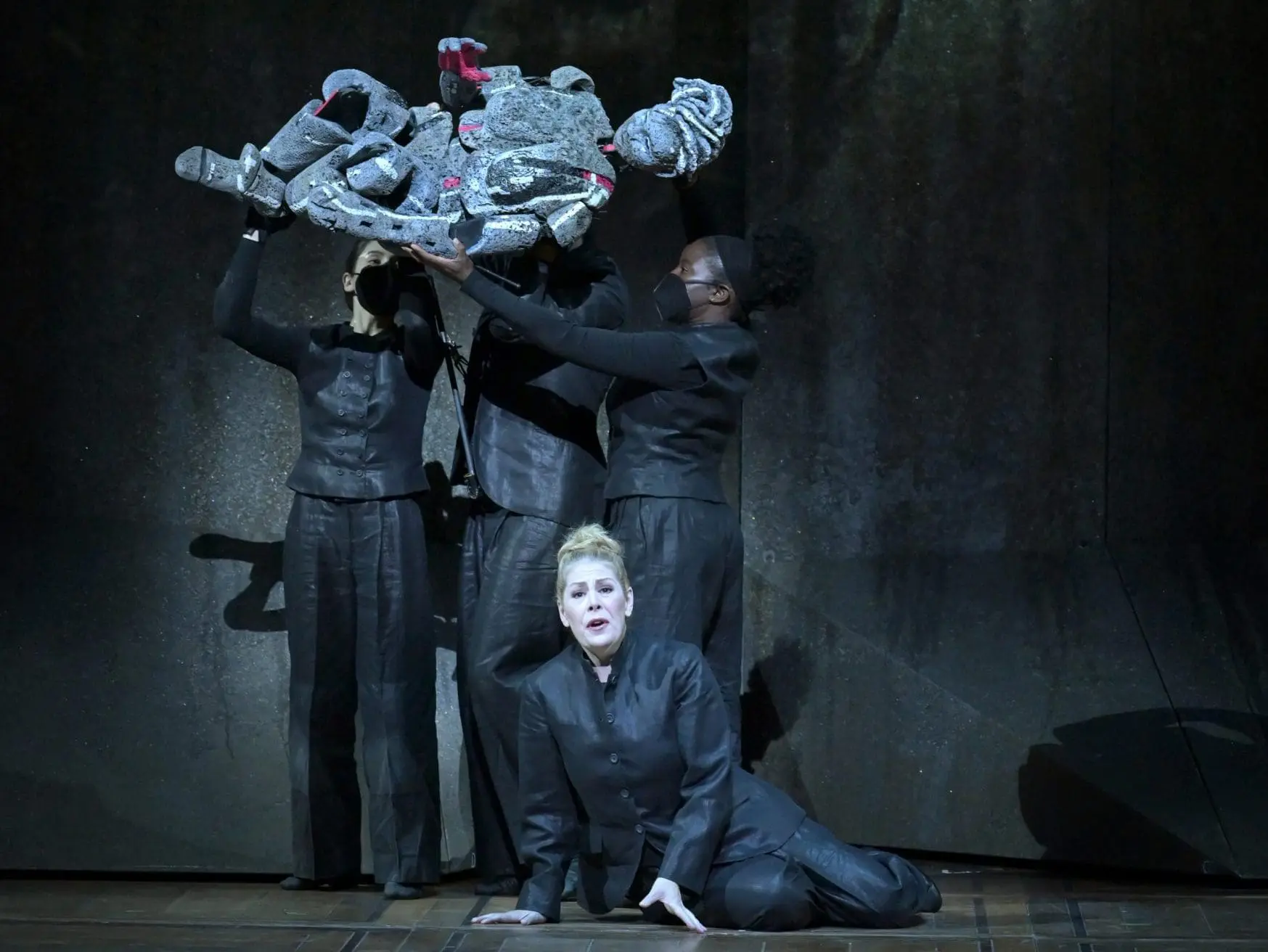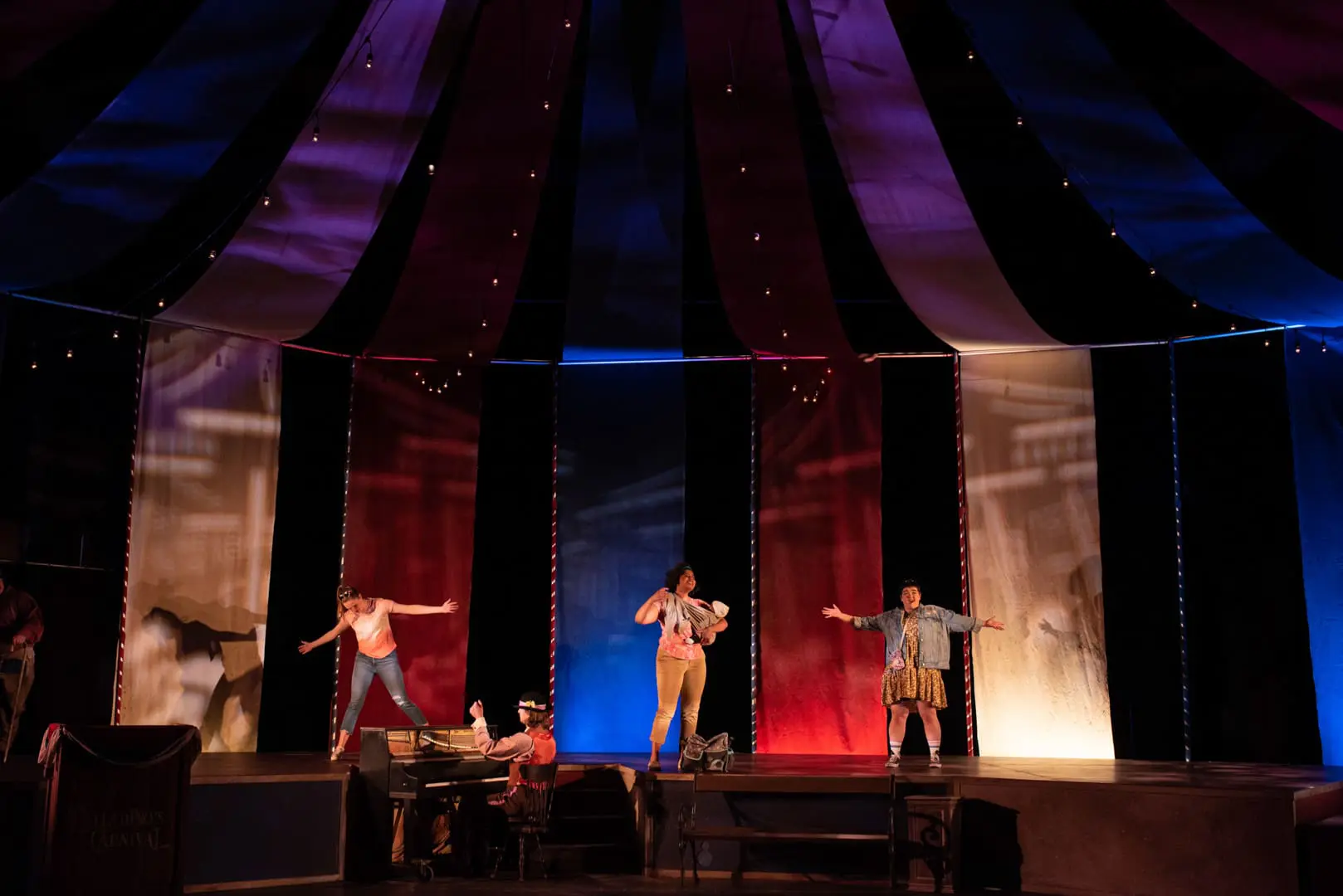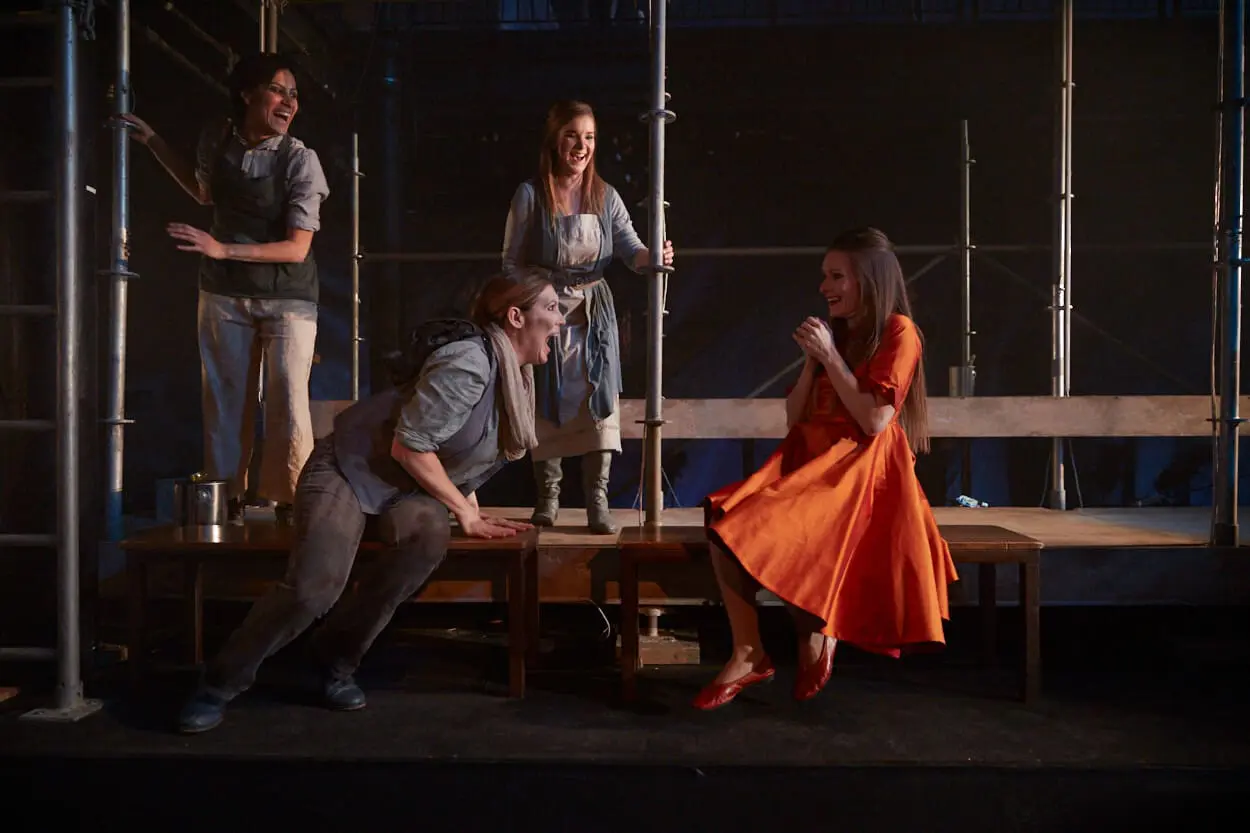Kopernikus (Rituel de la mort, 1978-79) was Claude Vivier’s only opera. Seen Dec. 4th at Espace Pierre Cardin in Paris, this production concludes Le Festival d’Automne à Paris 2018‘s series of five concerts dedicated to the work of the enigmatic Québecois composer. Born to unknown parents in 1948, he was adopted by a poor French-Canadian family only to be sent to a Marist Brothers boarding school at age 13 where he was prepared for a vocation in the priesthood. He left the novitiate at age 18—his earliest compositions date from this period. Like his mentor Stockhausen, with whom he studied in Cologne in 1971, Vivier was an adept of syncretism and the merging of different forms of spirituality. Today, he is considered to be one of the most talented composers of his generation.
For Kopernikus, Vivier wrote a libretto with large sections sung in a language of his own invention. There are quotations from Lewis Carroll, as well as evocations of fictional characters such as Merlin, the Queen of the Night, Isolde and especially Agni, the Hindu goddess of fire, but there is no clear narrative. The music references traditional Balinese orchestras, and tends to musical pointillism with the use of large intervals. There are numerous spectral effects and echoes in the style of Toshiro Mayuzumi.
The singers use techniques typical of contemporary performance practices of the 1980s: whistling, tapping on the lips and sounds produced from the throat. The projection of their voices has a hypnotic force; they are indeed performing a purifying or “death ritual,” the subtitle of the opera.
It is no wonder that the shaman of contemporary theatre directors, Peter Sellars, has succeeded in staging this other-worldly, ethereal work. Together with the dancer/choreographer Michael Schumacher, the American director seems to emulate Vivier who called not for a performance of his work but a “séance of revelation, incantation of forces of nature, forces that existed, exist and will exist, forces that are truth.”
On the small stage of Espace Pierre Cardin, yellow lamps shed light on a recumbent man (‘the defunct’) visible in the centre. Once the public is seated, the performers—seven singers, all members of the vocal ensemble Room Full of Teeth, and seven instrumentalists—enter. The singers don’t play specific roles but based on Vivier’s indications in the score, Sellars has given them multiple characters to interpret. The main character Agni, sung by Pulitzer Prize-winning composer, writer, violinist and vocalist Caroline Shaw, invokes the Blind Prophet sung by the thrilling bass-baritone Dashon Burton. He in turn summons the mother of Kopernikus, the superb mezzo-soprano Virginia Kelsey. This is followed by a number of short scenes involving different characters sung in shimmering tones by sopranos Estelí Gomez and Martha Cluver. These mythical figures accompany the defunct to the afterlife.
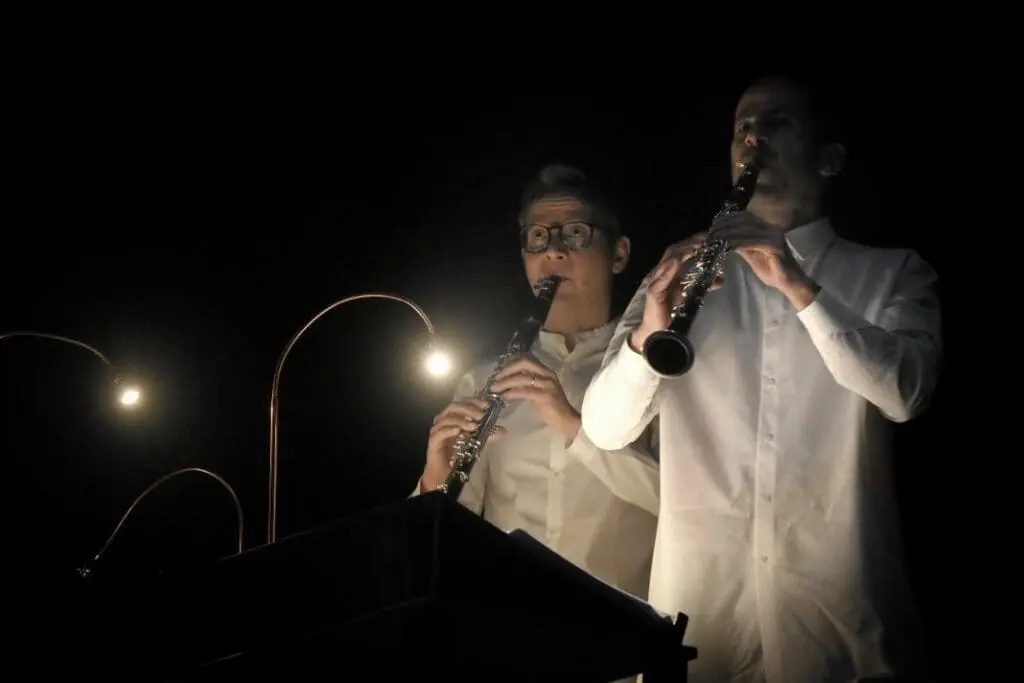
Mathieu Steffanus and Nicolas Fargeix in Le Festival d’Automne à Paris’ Kopernikus. Photo: Vincent Pontet
In the section Souvenir II, the Blind Prophet conjures up Merlin, the rich voiced bass Cameron Beauchamp. The image of a young woman (Pauline Cheviller) appears on a small television screen under the tomb of the defunct and explains different laws of the universe and the timeline of astronomers, philosophers and scientists from Thales to Copernicus to Einstein. Percussion instruments at the side of the stage such as gong, cymbals, bells and a glockenspiel are played by the singers seemingly as part of the ritual.
The instrumental ensemble, L’Instant Donné, is assembled on a plateau above the singers. Each member gives an individually brilliant performance, with special mention going to virtuoso violinist Naaman Sluchin and the splendid playing of trombonist Mathieu Adam and trumpeter Matthias Champon. The trio of clarinets: Mathieu Steffanus, Nicolas Fargeix and Benoît Savin is excellent as is the beguiling oboe playing of Maryse Steiner-Morlot.
The Renaissance astronomer Copernicus revealed the double movement of the planets, on themselves and around the sun, and thus revolutionized man’s understanding of himself in the universe. Vivier’s operatic masterpiece revolves around the themes of death, the finite and the infinite, spinning a metaphysical tale that perhaps holds a key to understanding this enigmatic genius.
Kopernikus continues its run at Théâtre du Capitole , Toulouse (Dec. 11-13) and Nouveau théâtre de Montreuil, centre dramatique national (Dec. 17-19).


